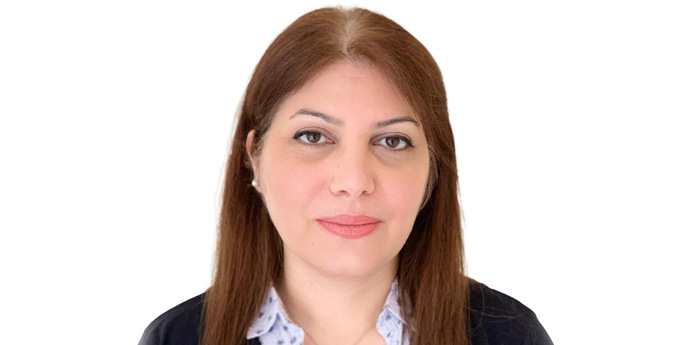Dr Sara Sharifzadeh is a Senior Lecturer in Computer Science. Her main areas of research include machine learning, artificial intelligence, multivariate data analysis with application in spectral signal/image analysis, digital health e.g. human activity recognition, satellite image analysis, and analysis of 3D point cloud data acquired from robot-mounted laser scanner sensors.
What is your field of research?
My field of research is Computer vision, Artificial Intelligence (AI) and machine learning. I worked on developing new AI algorithms for analysing multispectral images during my PhD and digital sensors 3D point cloud data for robotic applications during my post-doctoral period.
I have recently focused on remote sensing and digital health data analysis problems and collaborated with other researchers at national and international level.

How did you become interested in the field?
When I was a teenager, I enjoyed solving mathematical problems and my hobbies were painting and geography. I have started my education in the field of signal processing and after taking the image processing module during my first MSc, I became familiar with machine learning techniques used for image analysis and found it an interesting area for research. That is because I enjoy solving problems and analysing data, especially digital images.
How did you come to work at Swansea University?
I enjoy working in the academic sector especially as a researcher. Swansea University is a research-led University and allows academics to pursue their research targets, while achieving a balance between their teaching and research responsibilities. At Swansea University, I found a welcoming community of researchers in diverse fields and a supportive environment for academics like me with research aspirations. That matches my career interests and therefore, I have decided to work at Swansea University.
What do you hope to achieve with your research?
I would like to promote research in AI for computer vision problems, by developing new algorithms for the existing challenges. For this aim, I hope to be successful in securing research funding to have a strong research team. I hope to work with researchers, who are highly motivated to work on AI problems and have innovative minds and enjoy collaborative research work.
What practical applications could your research have?
The special application of my research is in (1) remote sensing data analysis for addressing environmental challenges, such as climate change, as well as (2) digital sensors data analysis for health monitoring of aged population. The valuable impact of these research lines motivates me to continue my research in this field.
What is next for your research?
There are important remaining challenges in analysing remote sensing and climatic data due to lack of high-quality historical satellite images and the unstructured nature of the environmental and agricultural data for developing high quality prediction models. In addition, there are unclear relationships between some of the environmental and climatic factors and their impact on agricultural productivity in climate change condition. These require developing a next generation of AI techniques that fill the gaps in data quality and encode new factors to the models for answering these questions and informing agricultural adaptation policies in climate change condition.
Regarding the application of AI in digital health, the rise in aged populations around the world, with shortage of medical staff, has increased the need for developing intelligent solutions for health monitoring. There is significant need for developing smart health monitoring systems capable of addressing the health and well-being monitoring of elderly people in residential areas to prolong their independent living, while preserving their privacy. These are the main concerns that should be addressed in developing future AI solutions.
